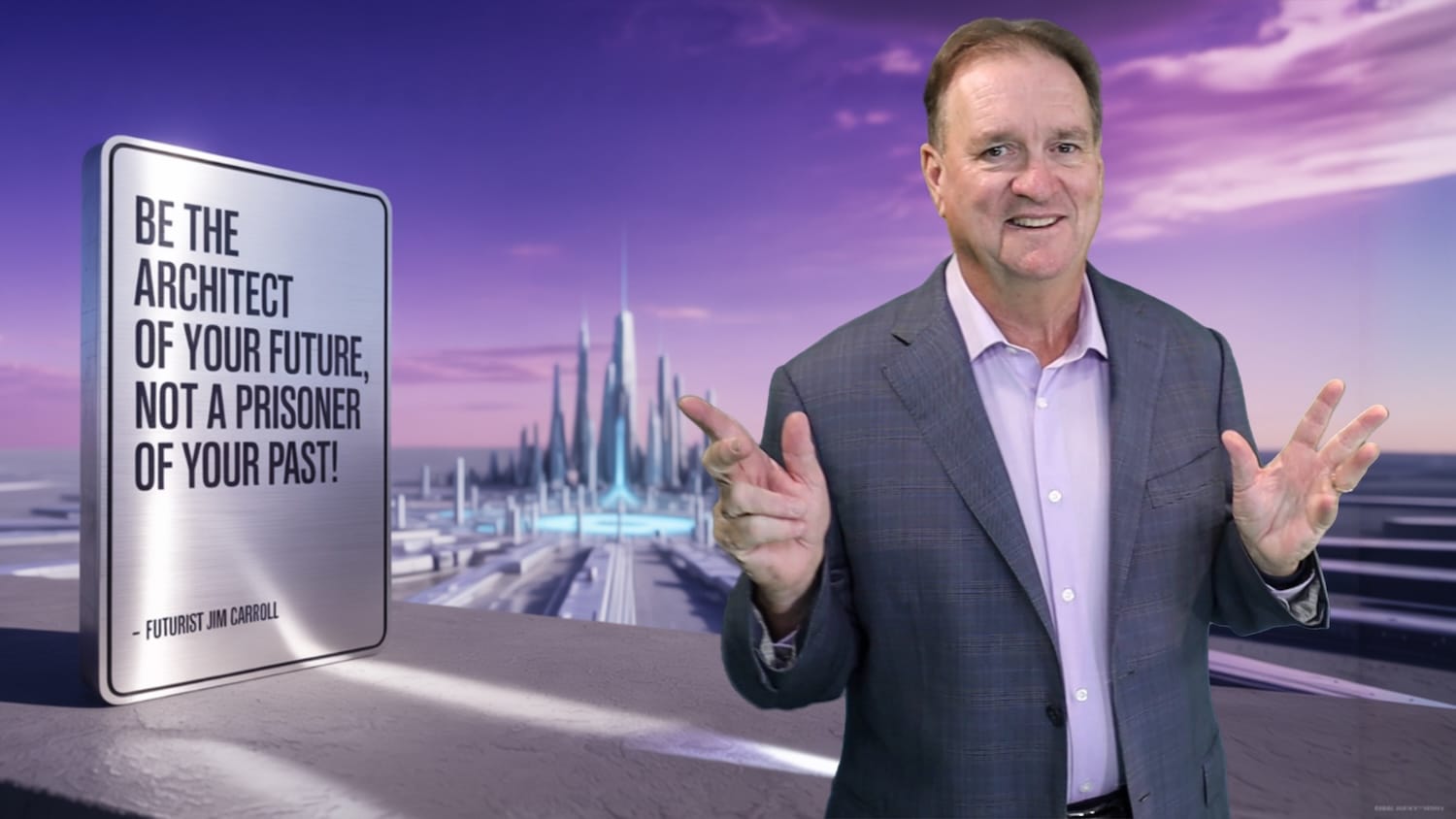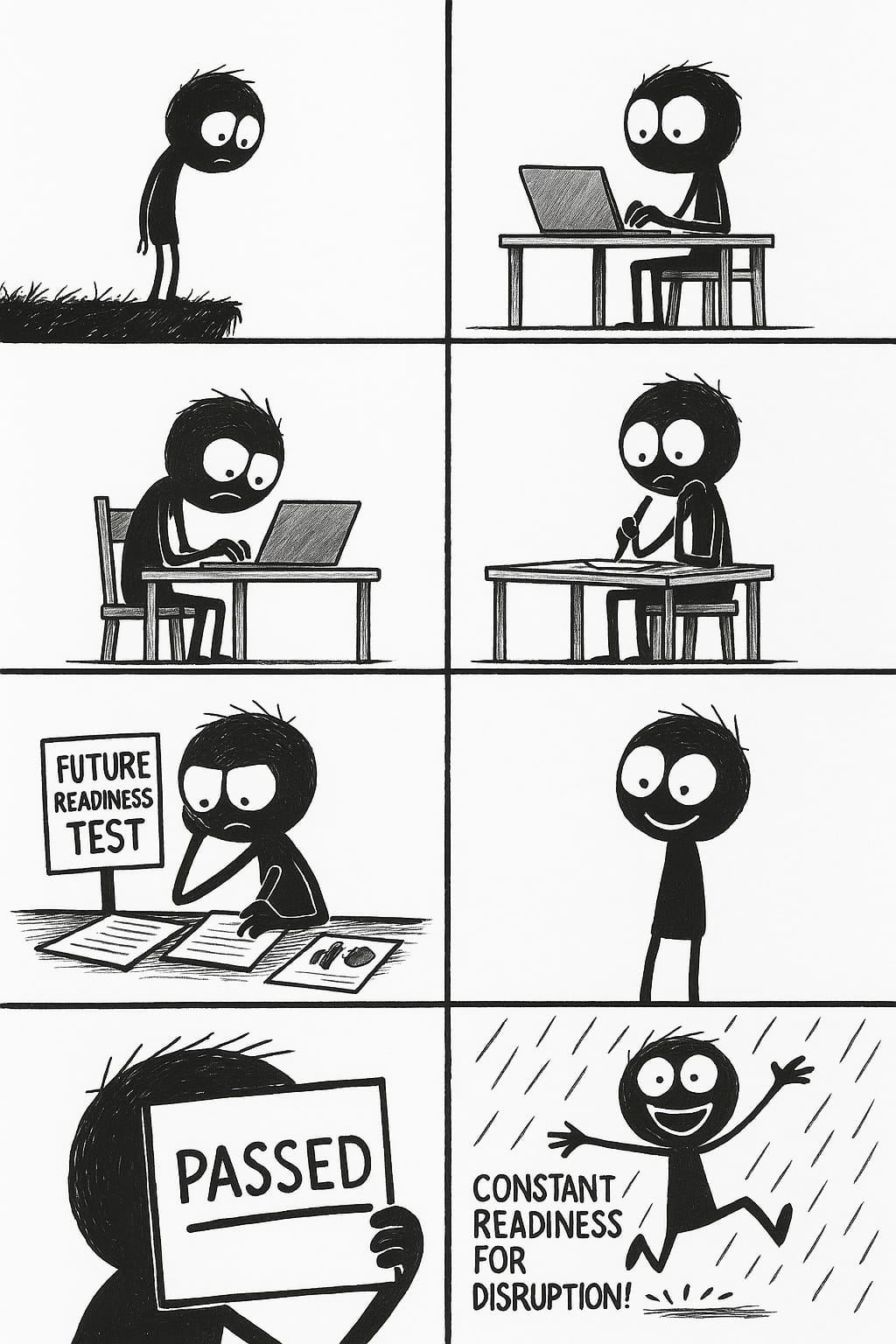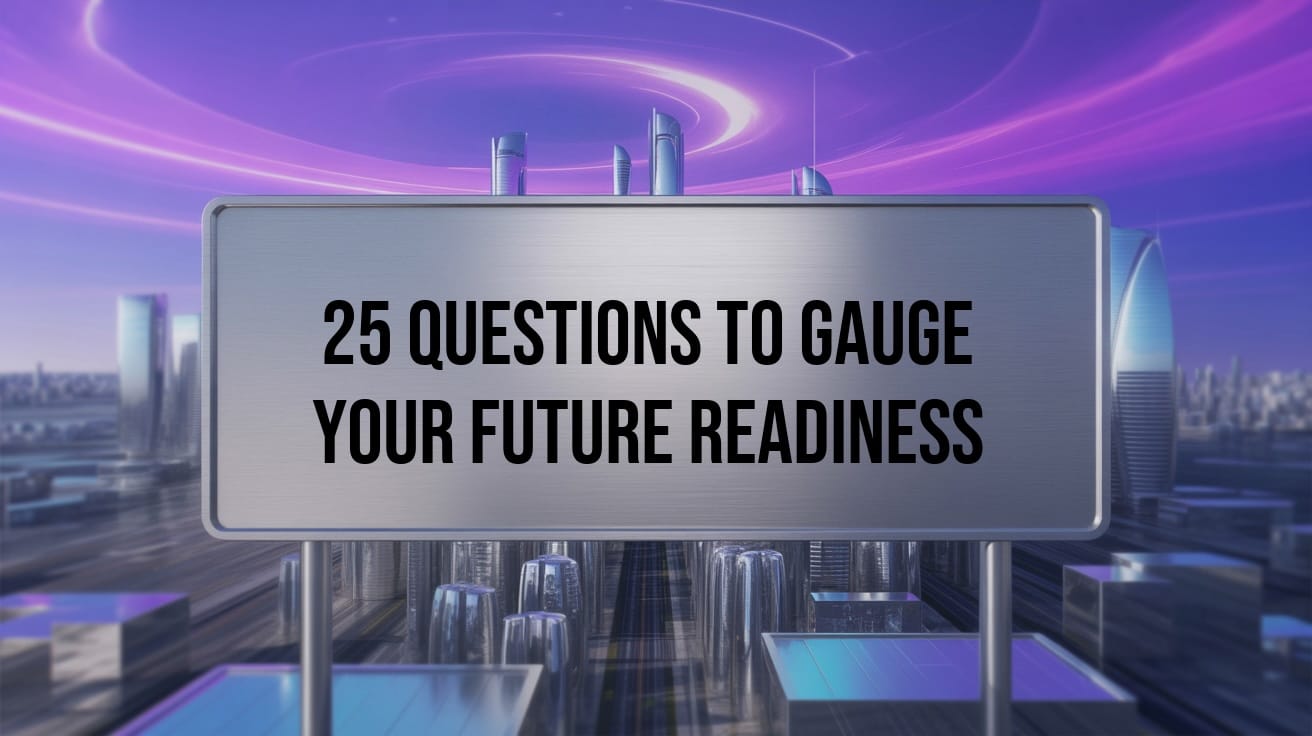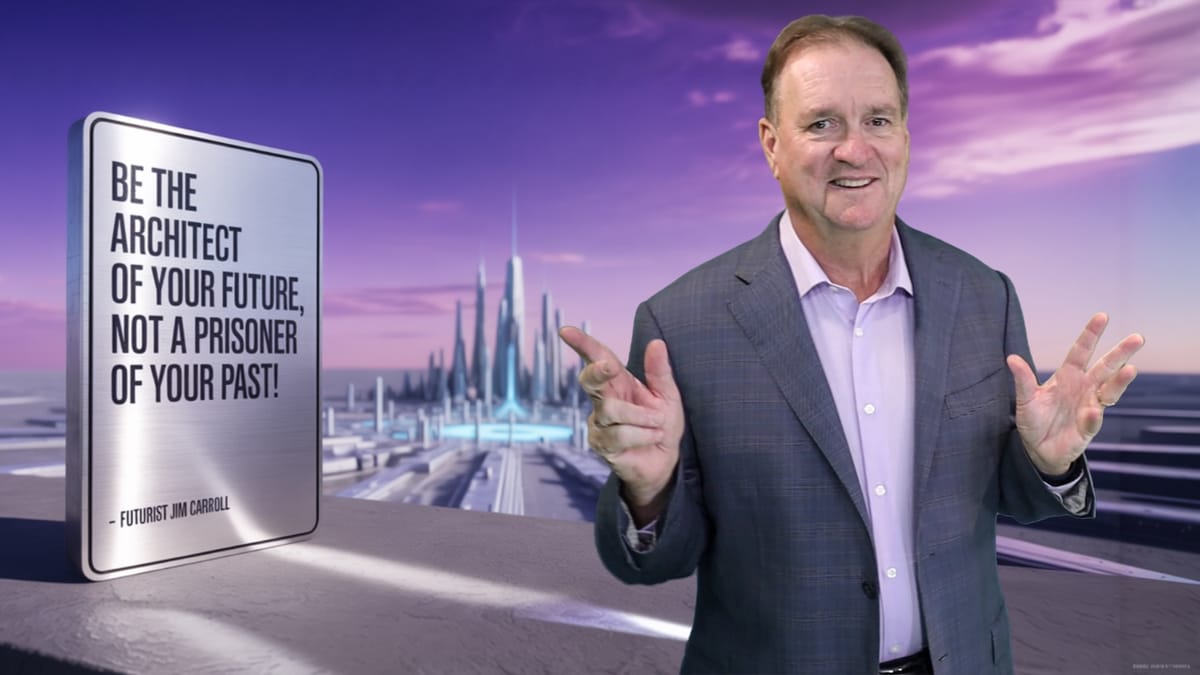"Be the architect of your future, not a prisoner of your past!" - Futurist Jim Carroll

Let's do a test on future readiness!

You should be ready for disruption, change, innovation, creativity! There is, of course, a PDF with the test you can read here!

Answer these questions honestly. This will help you assess if you are ready to do what it takes for tomorrows world, instead of being trapped in todays:
- Do I actively observe key trends to anticipate what's about to happen in my personal and professional life, and what I should do about it?
- Do I view future trends as opportunities rather than threats, and do I feel alive with the "oxygen of opportunity"?
- Am I actively cultivating the personal trait of thinking differently about the world around me?
- Do I continuously re-examine my personal innovation success, learning from experiences and adapting my approach for future endeavors?
- Is my ability to adapt, change, and evolve through a constant flood of new ideas defining my potential for success?
- Do I recognize that I am personally responsible for constantly figuring out how I need to change to keep up with the rapidly transforming world?
- Am I abandoning past thinking that may anchor me, and shifting my focus to the future with enthusiasm, motivation, and imagination?
- Do I avoid "aggressive indecision" by taking action, or do I defer decisions while waiting for absolute clarity?
- Am I investing in my "experiential capital" by trying new things, taking calculated risks, and accumulating wisdom from those experiences?
- Am I prepared for "hyper-innovation" and a rapid "time to market" for my ideas and personal projects?
- Do I actively know and track the major trends affecting my profession and career in the next five to ten years?
- Have I accepted that "volatility is the new normal" and structured myself (personally and professionally) to deal with this reality?
- Am I someone who makes things happen, or do I tend to sit back and wonder "what happened?"
- Is my primary focus on personal and professional growth and opportunity, rather than just managing current challenges or limitations?
- Am I regularly re-evaluating my personal "mission," goals, and strategies in light of changing circumstances?
- Am I creating excitement, purpose, and initiative in my daily work and life, contributing to my own "happiness index"?
- Am I immersing myself in the "global innovation idea loop" to discover and apply new ideas and thinking to my life?
- Do I embrace tension and diverse perspectives (including from "oddballs and rebels") to foster my creativity and innovation?
- Do I dare to ask the tough questions that challenge my fundamental assumptions, even if they make me uncomfortable?
- Do I consistently practice "forward-oriented innovation" in my life, proactively seeking out what comes next?
- Do I regularly conduct a "habit inventory" and actively break old habits that hinder my progress and openness to new ways?
- Do I focus on transforming my future rather than regretting or clinging to the past?
- Am I actively seeking to understand and plan for the "biggest unknowns" in my future, rather than ignoring them?
- Am I cultivating imagination, ingenuity, and initiative to lead my personal transformation?
- Does my hope for the future consistently outweigh my doubts about my potential for success?
Giving honest answers to these issues will really help you assess your career path when it comes to some of the most important skills of our time. What are they? You've seen many lists like this, but here’s a streamlined snapshot of what the OECD identifies as essential skills in its Learning Compass 2030 report:
- Transversal skills, also called soft skills - things like leadership, communication, teamwork, adaptability, self-direction
- Critical and creative thinking, including complex problem‑solving, systems thinking, innovation
- Digital literacy & tech capability, spanning use, monitoring, control of tech, plus programming and AI understanding
- l:earning strategies, like active learning, self‑reflection, thinking about one’s own thinking
- Sustainability mindset, including ecological awareness, systems thinking, and a disposition to act responsibly
- Resilience and self‑management, with stress tolerance, flexibility, initiative
Do you have what it takes to be the architect of your own future, knowing what's required as a foundation?
Futurist Jim Carroll passed the 'future readiness test' with flying colors!

